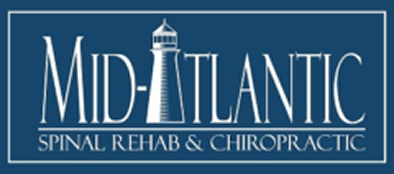Shoulder Injuries due to Baltimore Car Accidents
As a Baltimore Chiropractor that treats many patients involved in Baltimore car accidents, many people may think that I focus my examination and treatment purely on the spine. I suppose if I were not a Chiropractor I’d think the same thing. But this isn’t true. As a treating provider for these patients it is my obligation to diagnose and treat all musculoskeletal complaints causally related to the car accident, whether they are spinal complaints (neck pain, back pain, headaches) or extra-spinal complaints such as shoulder, elbow, wrist, hand, hip, knee, or ankle injuries. Technically I can also diagnose non-musculoskeletal injuries such as concussions, but that’s a topic for another blog post.
Let’s talk about shoulder injuries. Provided that there is relative motion at the shoulder joint (let’s say a patient is bracing on the steering wheel with one or both hands during an impact, or, say, the seatbelt harness is pinning a shoulder against the driver’s seat during an impact) there can be injuries to the soft tissue of the shoulder. Take a look at this image for an example.
http://www.newyorkinjurycasesblog.com/2012/05/articles/shoulder-injuries/shoulder-injury-pain-and-suffering-award-reduced/
Injuries to the shoulder come in many forms. Symptoms from whiplash usually run the gamut from simple sprains and strains to rotator cuff tears, AC joint separations, glenoid labrum tears, or even impingement of the supraspinatus tendon. After a physical examination of the patient I will usually taking plain film radiographs (x-rays) to rule out an obvious issue of fracture or dislocation. Provided that the shoulder is stable I will begin therapy for the shoulder that involves electrical muscle stimulation and/or ultrasound to help with pain and to increase blood flow to the region. Over the course of therapy I will take a patient through range of motion exercises and eventually progress towards stretching and strengthening activities.
Most patients who suffer shoulder injuries as a result of Baltimore auto accidents do well with conservative treatment of these conditions. Some, however, are not so fortunate. Provided that 3-4 weeks of therapy have gone by and a patient is not improving I will usually refer for an MRI of the shoulder. An MRI can take a closer look at the sensitive soft tissue structures of the shoulder and determine if there are any ligament or muscle tears responsible for ongoing discomfort and disability. Once I have a better understanding of the injury I make a determination as to whether continued conservative management is appropriate or if the patient requires referral to an orthopedic surgeon for evaluation of pain and instability.
The shoulder is a complex region. X-rays are, admittedly, limited in their usefulness in many cases following trauma. In the vast majority of cases most patients do well with conservative physical therapy modalities, exercises, and strengthening. For those patients that do not improve, MRI and/or referral to specialists are sometimes appropriate.
If you, or anyone you know, was involved in a Baltimore car accident have suffered a shoulder injury, please call Mid-Atlantic Spinal Rehab & Chiropractic at (443) 842-5500. We would be glad to help!
Dr. Gulitz
